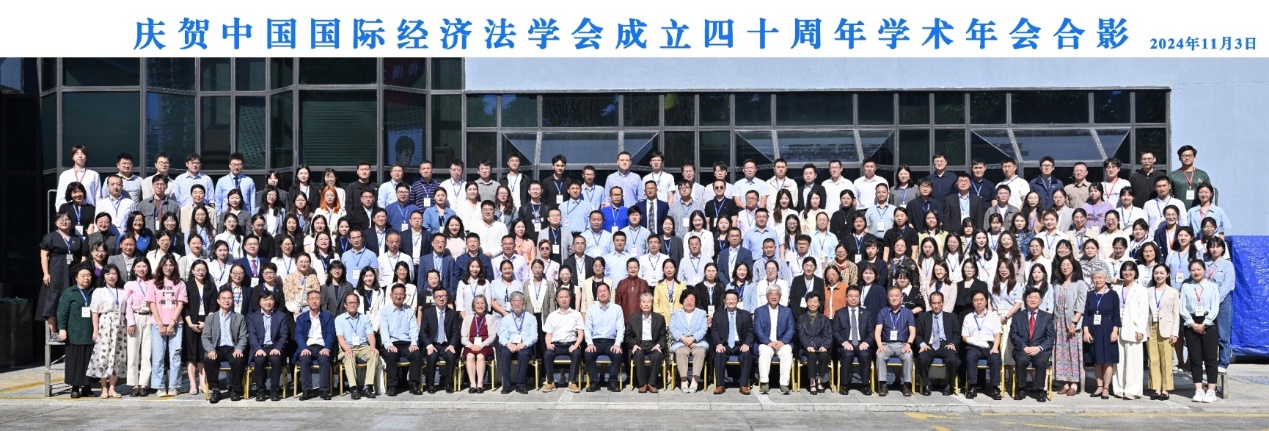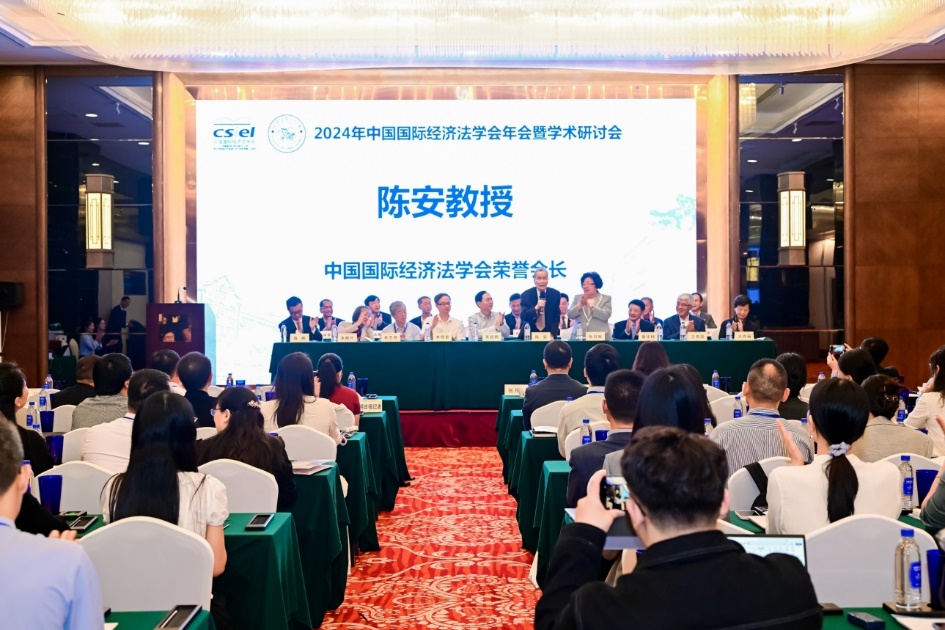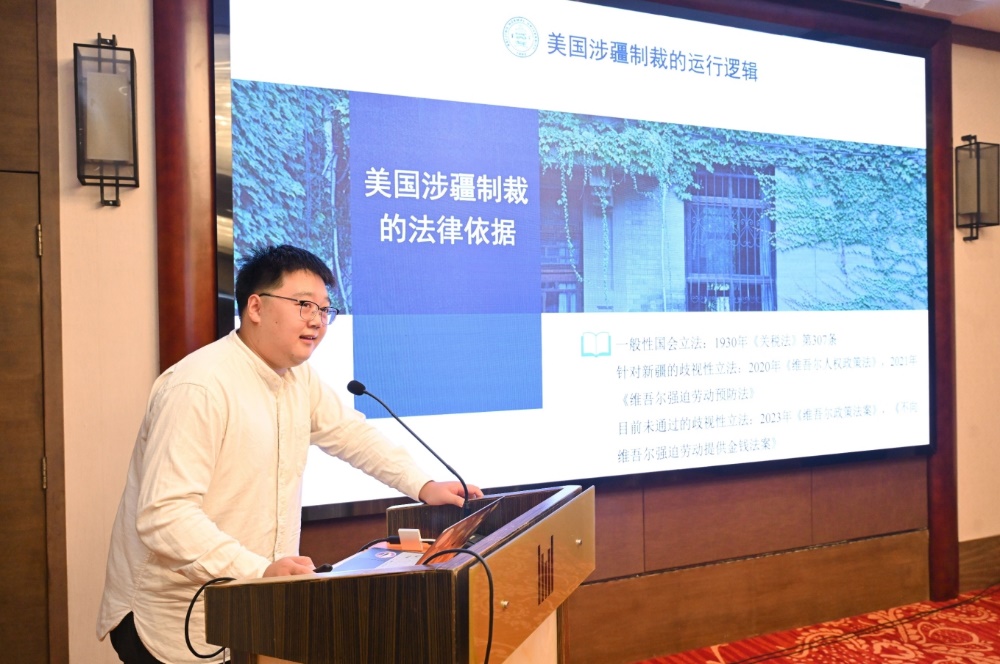
From November 1 to 3, the "2024 Annual Conference and Society Seminar of the China International Economic Law Society" hosted by the China International Economic Law Society and co-organized by the School of Law of Xiamen University and the Institute of International Economic Law of Xiamen University was held in Xiamen, Fujian Province.

This year's conference centered on the theme, "The Mission and Responsibility of Constructing a Foreign-Related Rule of Law: A Retrospective and Prospective Analysis on the 40th Anniversary of the Establishment of International Economic Law with Chinese Characteristics." The agenda encompassed a range of topics including "The Formation and Evolution of International Economic Law with Chinese Characteristics," "Building a Foreign-Related Rule of Law and the Innovative Advancement of International Economic Law with Chinese Characteristics," "Foreign-Related Rule of Law Construction and the Cultivation of International Economic Law Talent," "The Emerging Developments of the National Security Exception Clause in the Context of International Economic Law," "Reframing International Economic and Trade Regulations Amidst Global Climate Change Norms," "Legal Issues Surrounding Unilateral Sanctions and Export Controls," "Reforming and Innovating the International Investment Dispute Settlement Mechanism," "The Applicability of Bilateral Investment Treaties during Armed Conflicts," "Regulating the Cross-Border Flow of Financial Data," "Legal Aspects of Anti-Money Laundering in Digital Currency," "Legal Challenges in Global Tax Governance of the Digital Economy," and "Regional Trade Agreements and International Collaboration on the Belt and Road Initiative," among others.

Xu Zhenyi, a doctoral candidate at the Law School of Beijing Normal University, participated in the annual conference, delivering a presentation titled "An Analysis of the Illegality of U.S. Sanctions on Xinjiang" within Forum 6, which focused on "Legal Issues Surrounding Unilateral Sanctions and Export Controls." The presentation commenced by examining the operational logic behind the U.S. sanctions on Xinjiang, proceeding to dissect the U.S.'s overreach in applying national jurisdiction rules through these sanctions. Furthermore, the report scrutinized whether the sanctions can be validated by assessing the violations of World Trade Organization member obligations and the public morals exception clause as outlined in Article 20 of the General Agreement on Tariffs and Trade (GATT).

